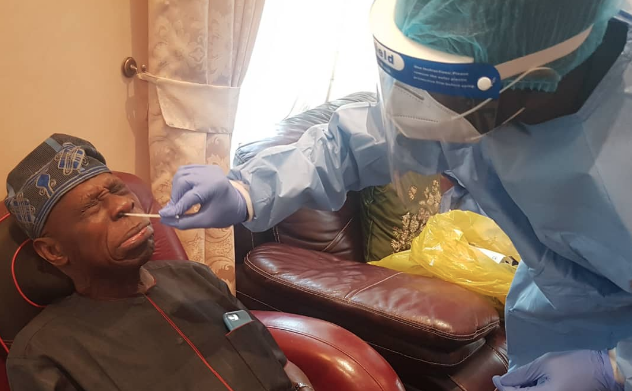Ecobank Transnational Inc.’s [ETI] gained speed on the downswing in the second quarter, which has extended the bank’s revenue losses in the first quarter and left profit falling.
Gross earnings paced up from a 2 percent decline in the first quarter to a year-on-year decline of 3 percent at half year ended June 2020.
Profit capacity remained impaired so far in the year at a year-on-year drop of 18 percent at half year after a 19 percent drop in the first quarter. It is a swift turn in fortune for the West Africa bank from 9 percent growth in gross earnings and 28 percent advance in profit at the 2019 close.
The bank’s management has lost strength on the proportion of revenue it is able to convert into profit. The margin is down from close to 15 percent in the same period last year to 12 percent at half year 2020. It is however an uptick from 10 percent at the end of the first quarter.
Advertisement
The bank’s profit weakness hangs around just one major operating figure and that is impairment loss on financial assets. Credit loss expenses stand out as a sole determinant of what happens to profit – either an advance or a decline.
Last year, a drop of 55 percent in net loan impairment expenses powered exclusively a big gain in profit margin and the upswing in profit performance the bank recorded for the year. That meant a cost saving of more than N58 billion on loan impairment expenses for the bank in 2019.
A sharp U-turn in loan impairment losses this year is equally the driver of the falling profit so far. A year-on-year growth of 49 percent in net loan impairment expenses in the first quarter sped up to 76 percent at half year. Management therefore devoted an increased share of operating profit to loan loss expenses from 32 percent in the first quarter to 35 percent at half year compared to 22 percent in the same period in 2019.
Advertisement
The drop in loan impairment expenses at the end of last year turned a 9 percent drop in operating profit before the charges into a 35 percent leap in operating profit after the loan loss expenses. The position has reversed this year with an increase of 11 percent in operating profit before loan impairment expenses turning into an 8 percent drop after the charges.
Rising loan impairment expenses reflects a 51 percent drop in loan recoveries to N18.5 billion at half year. Management is maintaining a seal on new lending, leaving the customer loan portfolio marginally down at N3.3 trillion at the end of half year from the closing mark in 2019.
In five and half years to June 2020, ETI has recorded loan impairment expenses of about N620 billion. The effect of the huge credit losses on the bottom line has been up and down swings that have continued into the current financial year.
Pressure is also coming from the side of earnings this year. A drop of 14 percent in non-interest income in the first quarter sustained at half year to stand at N129 billion. This is against an increase of 13 percent in non-interest revenue at the end of last year. While all the key components of non-interest earnings grew last year, they were all down at the end of half year in June 2020.
Advertisement
A favourable swing came from interest expenses, which accelerated its decline from 12 percent in the first quarter to 17 percent at half year, closing at N96 billion. Interest expenses had jumped more than three and half times ahead of interest income at the end of last year.
The drop in interest expenses is against a 5 percent increase in interest income to roughly N258 billion at half year. The favourable combination maintained the first quarter position of a 23 percent advance in net interest income at over N161 billion at the end of June 2020.
The corporation closed half year operations in June 2020 with gross earnings of N392 billion, which is a 3 percent decline year-on-year. The increase in interest income could not fully counter the accelerated drop in non-interest income – which accounted for the drop in gross earnings. Revenue growth has been weak for the bank in recent years and even the growth recorded last year was only possible in naira terms due to exchange rate differential.
The decline in interest expenses afforded the bank a cost saving of over N19 billion over the review period. The proportion of interest earnings devoted to interest expenses went down from 47 percent to 37 percent year-on-year. The bank was therefore able to overwrite the 14 percent drop in non-interest income and raise operating income by 4 percent to over N290 billion.
Advertisement
The bank’s management reined in operating expenses in the light of the disappointing revenue performance. Total operating cost was flat at N186 billion at the end of the half year operations in June 2020. It had grown by 11 percent at the end of last year.
A high and accelerating growth in net impairment expenses for credit losses is the singular development so far this year that is dictating the bank’s earnings story. It is responsible for a void between an 11 percent improvement in operating profit and a drop of 8 percent in pre-tax profit.
Advertisement
ETI closed half year operations with an after tax profit of N48.5 billion, which is a drop of 18 percent year-on-year. The bank’s profit records in recent years have followed up and down swings and the current financial year seems set for a downturn.
The bank earned 136 kobo per share in at the end of half year, down from 176 kobo per share in the same period in 2019. It closed last year’s operations with earnings per share N2.81.
Advertisement
The outlook for the bank this year indicates that pressure on the bottom line will sustain in the face of rising loan impairment expenses and inability to grow revenue. The bank’s management can be expected to keep costs reined in, which at best will slow down the pace of profit drop.
Advertisement
Add a comment







